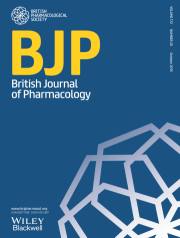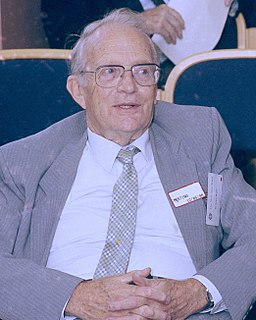| Gareth Sanger | |
|---|---|
| Nationality | United Kingdom |
| Employer | |
| Website | www |
Dr Gareth J. Sanger (born 1953) is a British pharmacologist.
Sanger was a Research Fellow at King's College Hospital Medical School from 1977 to 1990. [1] He then spent a period in the pharmacological industry, [1] before being appointed, in 2009, Professor of Neuropharmacology, at Queen Mary University of London. [2]

Queen Mary University of London (QMUL) is a public research university in London, England, and a constituent college of the federal University of London. It dates back to the foundation of London Hospital Medical College in 1785. Queen Mary College, named after Mary of Teck, was admitted to the University of London in 1915 and in 1989 merged with Westfield College to form Queen Mary and Westfield College. In 1995 Queen Mary and Westfield College merged with St Bartholomew's Hospital Medical College and the London Hospital Medical College to form the School of Medicine and Dentistry.
He has served as editor and reviews editor for the "British Journal of Pharmacology" and as an editorial board member for "Drug Discovery Today". [1]

The British Journal of Pharmacology is a biweekly peer-reviewed medical journal covering all aspects of experimental pharmacology. It is published for the British Pharmacological Society by Wiley-Blackwell. It was established in 1946 as the British Journal of Pharmacology and Chemotherapy. The journal obtained its current title in 1968.
Drug Discovery Today is a monthly peer-reviewed scientific journal that is published by Elsevier. It was established in 1996 and publishes reviews on all aspects of preclinical drug discovery from target identification and validation through hit identification, lead identification and optimisation, to candidate selection.
Together with M Tyers he received the 1998 Pharmaceutical Research and Manufacturers of America (PhRMA) "Discoverer's Award" for their research into 5HT3 receptor/antiemesis, which led to the identification and development of the drug Kytril, [1] [2] an antiemetic to treat nausea and vomiting following chemotherapy.
An antiemetic is a drug that is effective against vomiting and nausea. Antiemetics are typically used to treat motion sickness and the side effects of opioid analgesics, general anaesthetics, and chemotherapy directed against cancer. They may be used for severe cases of gastroenteritis, especially if the patient is dehydrated.

Nausea is an unpleasant, diffuse sensation of unease and discomfort, often perceived as an urge to vomit. While not painful, it can be a debilitating symptom if prolonged, and has been described as placing discomfort on the chest, upper abdomen, or back of the throat.

Chemotherapy is a type of cancer treatment that uses one or more anti-cancer drugs as part of a standardized chemotherapy regimen. Chemotherapy may be given with a curative intent, or it may aim to prolong life or to reduce symptoms. Chemotherapy is one of the major categories of the medical discipline specifically devoted to pharmacotherapy for cancer, which is called medical oncology.
